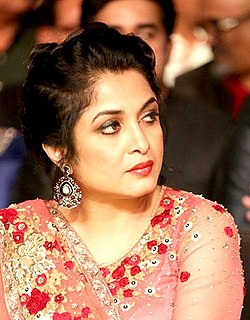

In a world on the brink of chaos, a brave warrior rises from simple origins to confront dark forces threatening his homeland. Guided by ancient prophecies and his strong family ties, he embarks on a quest to unite his people and protect their future against overwhelming odds.
October 31
2025
Release Date
Telugu, Hindi, Tamil,
Malayalam, Kannada
Language
58 minutes
3 hours
Running Time
Cast


Ramya Krishnan


Tamannaah Bhatia


Rana Daggubati


Prabhas


Sathyaraj


Anushka Shetty


Nassar
3.5
Average Rating
The above-mentioned average rating is based on the derived ratings of multiple review platforms
OH Review


Baahubali: The Epic Movie Review
Plot
"Baahubali: The Epic" takes audiences on an immersive journey that seamlessly weaves together the two-part saga into one extraordinary rendition. The narrative follows the internal struggles of the kingdom of Mahishmati, ruled by the formidable Rajamata Sivagami, portrayed with fierce authority by Ramya Krishnan. At the center of this saga stands Amarendra Baahubali, a prince whose bravery and nobility are tested against the treachery and jealousy of his stepbrother, Bhallaladev, embodied menacingly by Rana Daggubati. The film captures the essence of power dynamics, exploitation, and the discord that grows from familial bonds tainted by ambition. The plot thickens when Bhallaladev, envious and driven by a lust for power, orchestrates a destructive plot that leads to the betrayal and tragic death of Amarendra Baahubali, shocking the kingdom and setting off a cascade of events that affect future generations. Enter Mahendra Baahubali, the son of Amarendra, who embarks on a quest for identity and vengeance, unaware of his royal lineage until he meets Avantika. The film ingeniously compliments familiar scenes, such as the heartfelt moments shared between Amarendra and Devasena, while allowing new plot twists to keep even veterans of the franchise on the edge of their seats. As the story unfolds, audiences witness gripping politics, shifting loyalties, and clear motivations driving each character. The stakes heighten with every scene until the explosive climax where Mahendra confronts his past, shattering the expectations of viewers with surprising revelations. This rebirth of the franchise resonates especially well for fans who have long awaited the chance to experience it on the big screen, with the rich storytelling offering fresh insights on themes of love, sacrifice, and heroism. One standout aspect of "Baahubali: The Epic" is its runtime; although it exceeds three hours, the film maintains a brisk pace that keeps the audience engaged. The editing brings together pivotal moments in coherent form that magnify the emotional weight of the storyline. The blend of epic battles, intimate drama, and mythical elements transport viewers into a fantastical realm where every frame is both a feast for the eyes and a heart-tugging experience. In a landscape surrounded by cinematic marvels, "Baahubali: The Epic" stands tall, reaffirming its status as a cultural phenomenon with a tale that continues to captivate audiences years after its initial release.
Acting
The performances in "Baahubali: The Epic" are simply mesmerizing and worth every layer of applause they have received over the years. Prabhas shines brightly in the dual role of Amarendra Baahubali and Mahendra Baahubali, showcasing a remarkable range that captures the character's evolution from noble prince to a battle-scarred hero seeking redemption. His portrayal exudes a magnetic charisma, particularly in his slow-motion entries onto the battlefield—these moments not only amplify his heroic image but also have become iconic in the realm of Indian cinema. Ramya Krishnan delivers a powerhouse performance as Rajamata Sivagami, balancing authority and vulnerability with aplomb. Her emotional declaration, "Mera vachan hi hai shashan!" has not only defined her character but also cemented her as one of the most formidable female figures in Indian mythology. Her commanding presence is felt throughout, and she shares an electric chemistry with Prabhas that enriches the drama of their scenes. The villainy presented by Rana Daggubati as Bhallaladev deserves particular mention; he embodies his role with a dark brooding intensity that evokes a hateable disdain, making audiences root passionately against him. Each of his interactions fuels the rivalry with Baahubali, creating a palpable tension that resonates throughout the film. Anushka Shetty and Tamannaah Bhatia also contribute compelling performances, bringing strength and complexity to their roles as Devasena and Avantika, respectively. They aren’t mere damsels waiting to be rescued; rather, both characters exhibit agency and resilience. As fierce warriors, they redefine the representation of women in epic tales by refusing to be relegated to mere love interests. Supporting characters, including Sathyaraj as Kattappa, add depth and critical backlinks to the story. His performance is layered with grief and strength, culminating in the ultimate act of betrayal that leaves audiences gasping. Each cast member makes indelible impressions that serve the narrative, ensuring that this epic saga is not just about its stunning visuals but also deeply rooted in its character-driven storytelling. "Baahubali: The Epic" is an ensemble triumph, showcasing the caliber of talent present in Indian cinema today.
Cinematography
The cinematography in "Baahubali: The Epic" is a breathtaking visual treat that truly encapsulates the grandeur of the story it tells. From sweeping aerial shots of the majestic kingdom of Mahishmati to the intricate details of battle sequences, each frame is meticulously crafted with artistry that evokes pure wonder. The cinematographer has managed to paint a canvas unlike any other, where the beauty of the landscapes complements the epic nature of the sequences unfolding within them. With a skilled eye for movement and dynamic angles, the camera immerses viewers into on-the-ground experiences during combat scenes. The battle between Baahubali and Bhallaladev is captured with a raw intensity that makes every sword clash and heroic charge feel monumental. Techniques such as slow-motion cinematography are utilized to highlight pivotal moments, allowing audiences to drink in the spectacle of epic confrontations that define the film’s core. Color palettes further enhance the storytelling, with rich, vibrant hues visually representing various themes and emotions. The stark contrast between the liberating hues of the Kuntala kingdom and the dark tones reflecting the treachery of Mahishmati creates a stark visual narrative that speaks volumes without uttering a word. Lighting is masterfully manipulated, shifting from golden sunlight during moments of hope and victory to darker, shadowy tones in times of despair and betrayal. Visual effects intertwine smoothly with camera work, adding layers of complexity to entire sequences. The infamous battle involving flaming bulls and massive armies remains jaw-dropping, blending practical effects with digital artistry, leaving audiences in awe of the scale of the production. Even the moments of character-driven intimacy are shot with such care that viewers can feel the emotional weight of the narrative through their gaze. "Baahubali: The Epic" sets a benchmark in Indian cinema that will be referenced for years to come. Whether it’s the adrenaline-pumping action or the quiet emotional exchanges, the cinematography marries both spectacle and story beautifully, offering a viewing experience that demands to be experienced on the biggest screens possible.
Direction
SS Rajamouli’s direction in "Baahubali: The Epic" is a masterclass in the art of cinematic storytelling. He has emerged as one of the most significant voices in Indian cinema today, and this film serves as a testament to his innate ability to juggle grand narratives while grounding them firmly in emotional truths. Rajamouli displays a deftness in pacing, ensuring that the nearly four-hour runtime never feels tedious, skillfully modulating the rhythm to keep audiences glued to their seats. The director's vision for "Baahubali: The Epic" seems rooted in rediscovering the magic of ancient tales while simultaneously crafting something new. Rajamouli successfully weaves the two earlier films into a cohesive whole, allowing audiences—old fans and newcomers alike—to navigate the narrative without confusion. The careful playing out of character arcs and themes of betrayal, loyalty, and heroism adds layers of complexity that are often challenging to accomplish in reboots or extended cuts of films. His ability to create iconic moments is well-documented, but here we see Rajamouli elevating that skill to astonishing heights. The coronation scene where cheers erupt at the mention of "Baahubali" evokes a sense of communal euphoria, demonstrating his deep understanding of audience engagement. Likewise, the deeply felt reunion of Mahendra with Mamta echoes heart-wrenching emotions that pull on the viewers' heartstrings. Rajamouli's directional style also embraces distinct visual flair, as seen in the breathtaking execution of battle sequences that are carefully choreographed and cinematically stunning. Each individual’s momentum, both in combat and in pivotal narrative moments, leads to a symphony of visual narration, making every important scene emotionally resonant. What truly stands out is Rajamouli’s knack for empowering female characters. The women of "Baahubali: The Epic" are crafted with depth, precision, and agency, breaking free of traditional constraints that often limit female roles in epic narratives. The director's commitment to portraying strong characters is a refreshing takeaway, ensuring the overall narrative appeals to a wider audience. In essence, "Baahubali: The Epic" is a culmination of Rajamouli's craft, where he successfully blends every element—plot, acting, cinematography—into a resplendent adventure. It reflects his continuous journey of pushing cinematic boundaries and invigorating storytelling that transcends cultural and linguistic barriers. Loyal fans eagerly await his next ventures, and rightfully so, as this latest offering is a hallmark of his unmistakable talent.
Conclusion
In conclusion, "Baahubali: The Epic" is not merely a film; it is a resounding celebration of storytelling, creativity, and cinematic grandeur. This epic saga offers a meticulously crafted experience that draws on both nostalgia and fresh excitement for audiences. Every aspect of the film, from the compelling plot to the jaw-dropping visuals and strong performances, converges well, establishing its rightful place in the fabric of Indian cinema. The film is a tribute to a decade of greatness marked by the original releases, "Baahubali: The Beginning" and "Baahubali: The Conclusion." This special re-release serves to remind us how enduringly popular the franchise has remained, capitalizing on its rich legacy while inviting newcomers into this mythic world. The heartfelt performances, glorious visuals, and electrifying direction amplify the experience to such heights that it becomes a journey worth undertaking again. For existing fans, this cinematic opportunity is not just a chance to witness the grandeur anew, but a poignant reminder of the emotional tapestries woven within the narrative—a recollection of moments that left indelible marks on their hearts. Even for those who may have previously watched the films in smaller formats, viewing "Baahubali: The Epic" on the big screen is a transformative experience that elevates the story to another dimension. If you're an admirer of epic tales, enthralling action, and unforgettable drama, make it a priority to revisit the kingdom of Mahishmati. "Baahubali: The Epic" stands as a benchmark of storytelling prowess, proving that great cinema can transcend time and continue to captivate audiences for generations. Here's to many more adventures with SS Rajamouli’s compelling vision, and may the saga of Baahubali continue to ignite the imagination of all.
Share this review
The Great Reviews
India Today
Rediff
Times Now
Tanmayi Savadi
India TV
More like this
Mardaani 3
In Mardaani 3, in a gripping race against time, brave officer Shivani Shivaji Roy returns to save girls who have mysteriously vanished. With danger lurking a...
Azad Bharath
In Azad Bharath, neera Arya becomes a courageous freedom fighter in India's first women's army, founded by Subhas Chandra Bose. As she battles for independen...


